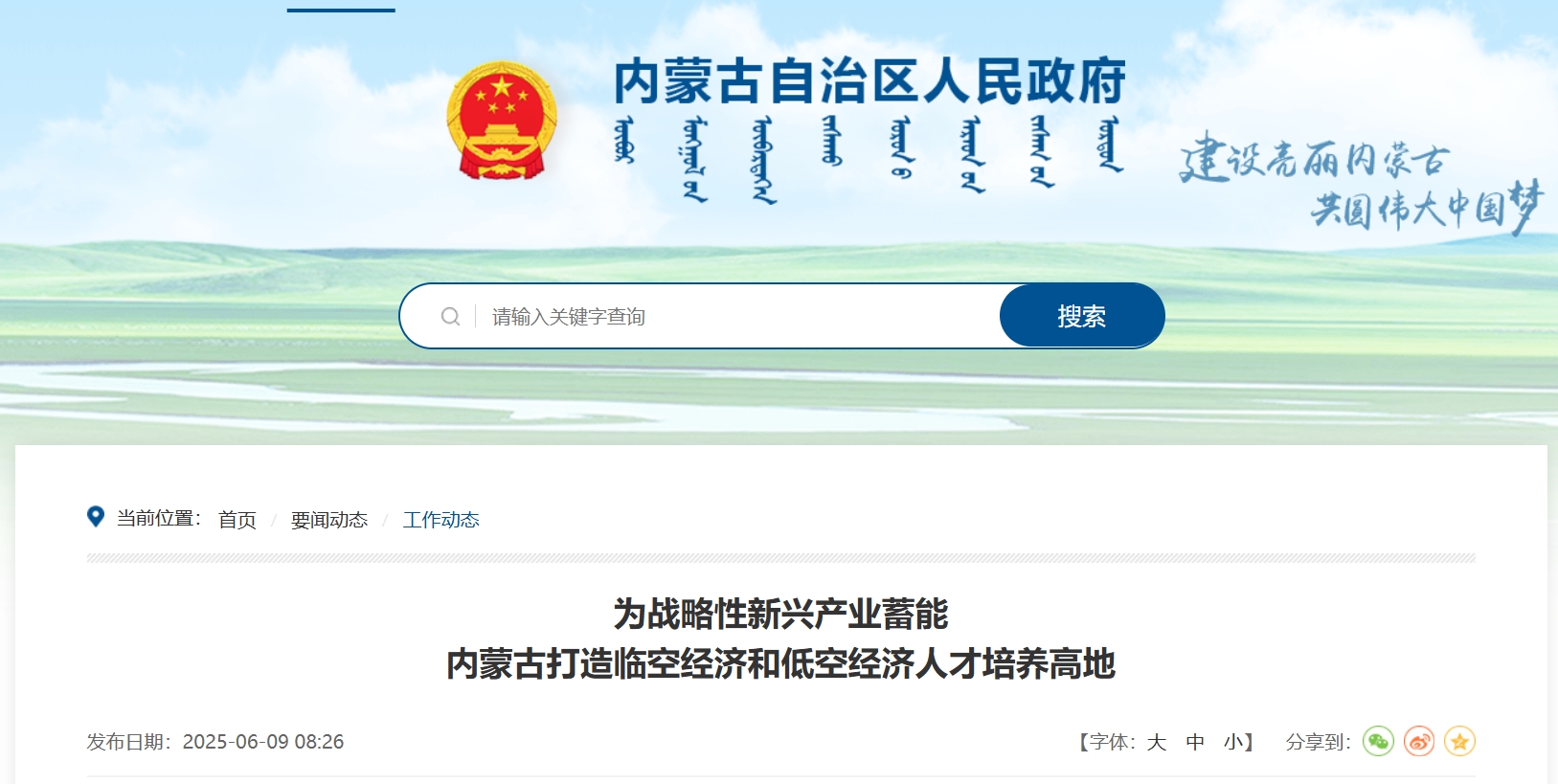 AI Digest Pending…
AI Digest Pending…
Recently, the Education Department of Inner Mongolia Autonomous Region issued the Work Plan for Building a Highland for Talent Cultivation in the Aerotropolis and Low-Altitude Economy Sectors (2025-2027), energizing Inner Mongolia's efforts to cultivate the low-altitude economy as a strategic emerging industry.

The plan proposes to:
Strengthen the cultivation of high-level research-oriented talents by establishing the Autonomous Region Institute for Aerotropolis and Low-Altitude Economy. This initiative adopts a new "expedited project-based" talent cultivation model, modeled after the National Artificial Intelligence Institute, to break down institutional, departmental, and disciplinary boundaries. It will prioritize support for doctoral program applications in disciplines such as Transportation Engineering (Aviation focus), Control Science and Engineering, and Mechanical Engineering; and build interdisciplinary clusters in Intelligent Transportation Systems, Low-Altitude Intelligent Technologies, and Aeronautical Equipment Technology.
Strengthen the cultivation of high-caliber application-oriented talents by supporting local universities in co-establishing institutions like the Large Aircraft College and the Modern Civil Aviation Industry College with partners such as the Commercial Aircraft Corporation of China (COMAC) and the Training Base of Civil Aviation University of China's Inner Mongolia Flight College. It will add over 10 new undergraduate majors including Aircraft Design and Engineering and Low-Altitude Technology and Engineering, and transform/upgrade over 20 traditional majors; support universities in jointly organizing summer schools with top-tier institutions and leading enterprises outside the region to precisely select high-potential research students with innovative capability and interdisciplinary backgrounds.
Strengthen the cultivation of high-quality skilled talents by supporting vocational colleges in building a "Traditional Engineering + Aviation Specialty" program system and offering interdisciplinary courses such as "Drone Applications + Power Inspection, Emergency Firefighting, Logistics & Delivery, Agricultural Plant Protection" to enable customized training of skilled professionals; support vocational colleges in collaborating with government, industries, and enterprises to establish mixed-ownership industry colleges for the aerotropolis and low-altitude economy sectors, industry-education integration communities, and practical training bases.
Advance scientific innovation and commercialization by supporting local universities in partnering with top-tier domestic and international universities/research institutes to conduct specialized research in areas like lightweight aeronautical materials, green aviation technologies, and new scenario development, and jointly build research platforms such as the Low-Altitude Transportation Engineering Laboratory; support universities in establishing dedicated incubation zones for the aerotropolis and low-altitude economy sectors within the Autonomous Region National University Science Park, providing incubated enterprises with preferential policies and services in human resources, finance, and taxation.
Through a series of expedited measures, the plan aims to achieve the goal of "cultivating over 100 high-level research-oriented talents, over 1,000 high-caliber application-oriented talents, and over 2,000 high-quality skilled talents annually". This strategy seeks to converge education, science, technology, and talent to empower industry, drive talent cultivation and innovation through industrial development, and propel the high-quality development of the autonomous region's aerotropolis and low-altitude economies.
